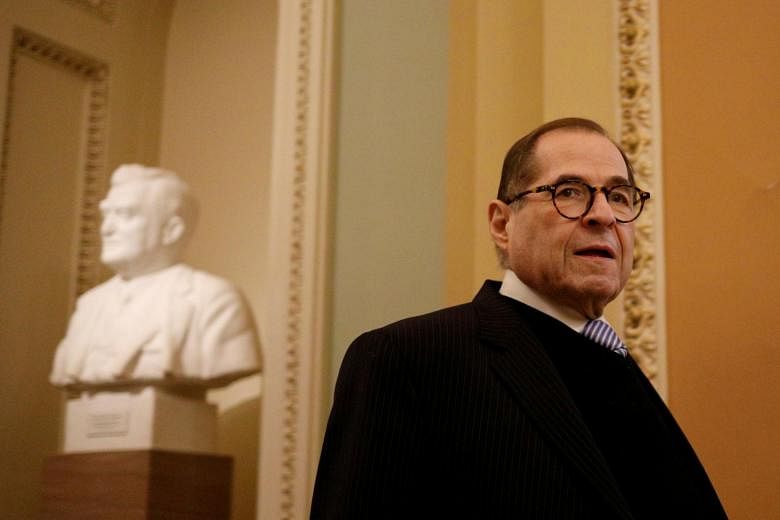WASHINGTON (BLOOMBERG) - House negotiators reached a bipartisan agreement to extend provisions of a law authorising surveillance of suspected spies and terrorists, according to Judiciary Chairman Jerrold Nadler, a Democrat.
Lawmakers are trying to avoid a temporary lapse or the need for a short-term extension of the law. But that could be complicated if two Republican senators stick to their pledge to oppose the effort.
Congress has until March 15 to extend sections of the Foreign Intelligence Surveillance Act (Fisa), giving lawmakers little time to get a reauthorisation Bill through the House and Senate. The Trump administration has not yet signed off on the deal and is still reviewing the details, according to an official.
The House is scheduled to leave Washington on Thursday (March 12) afternoon, and both the House and Senate aren't planning to be in session next week. Some lawmakers have raised concerns about Congress reconvening later this month due to the risk from the coronavirus that has infected hundreds of Americans.
House Republicans said earlier on Tuesday they were optimistic about reaching a deal, but they didn't immediately confirm an agreement.
Missouri Senator Roy Blunt, a member of Republican leadership, said the Senate would likely go along with a bipartisan House Bill if supported by the Trump administration. Attorney General William Barr has been leading the negotiations between both chambers, and President Donald Trump would ultimately have to sign the legislation.
If the House has a bipartisan deal that's "blessed by the attorney general, that would get us a long way", Mr Blunt said on Tuesday.
The main opposition comes from Republican Senators Rand Paul of Kentucky and Mike Lee of Utah to a provision, known as Section 215, that allows US intelligence agencies to collect information about Americans without court warrants. While this was always a concern for Libertarian-leaning lawmakers, the issue has become increasingly controversial among conservatives who say Trump's 2016 campaign was wrongly put under surveillance.
Mr Sergio Gor, a spokesman for Mr Paul, said they are still reviewing details and aren't commenting yet.
Mr Lee told reporters Tuesday that he hadn't seen any Fisa proposals that satisfy him.
By withholding their consent for a House-passed Bill to move quickly through the Senate, Mr Paul and Mr Lee would force the measure through days of Senate procedure, all but precluding the possibility of passing it through both chambers this week.
SHUTTLE DIPLOMACY
Senate Judiciary Chairman Lindsey Graham of South Carolina said if a few senators block an extension this week they do so "at their own peril". Mr Graham, a Republican from South Carolina and close Trump ally, said he plans to discuss the issue with Mr Barr.
Although the task of renewing Fisa authorisation in the past has fallen to the director of national intelligence, this time Mr Barr has taken the lead in negotiations between House and Senate lawmakers, White House officials and Mr Trump.
Mr Barr has advocated for a clean extension of the three expiring provisions, but is open to revisions that are practical, according to a Justice Department official. The official declined to discuss details of the negotiations.
Mr Barr and his top aides have been conducting shuttle diplomacy in recent days, meeting with key lawmakers and communicating proposals to the White House. Mr Trump is still seen as a wild card, however.

